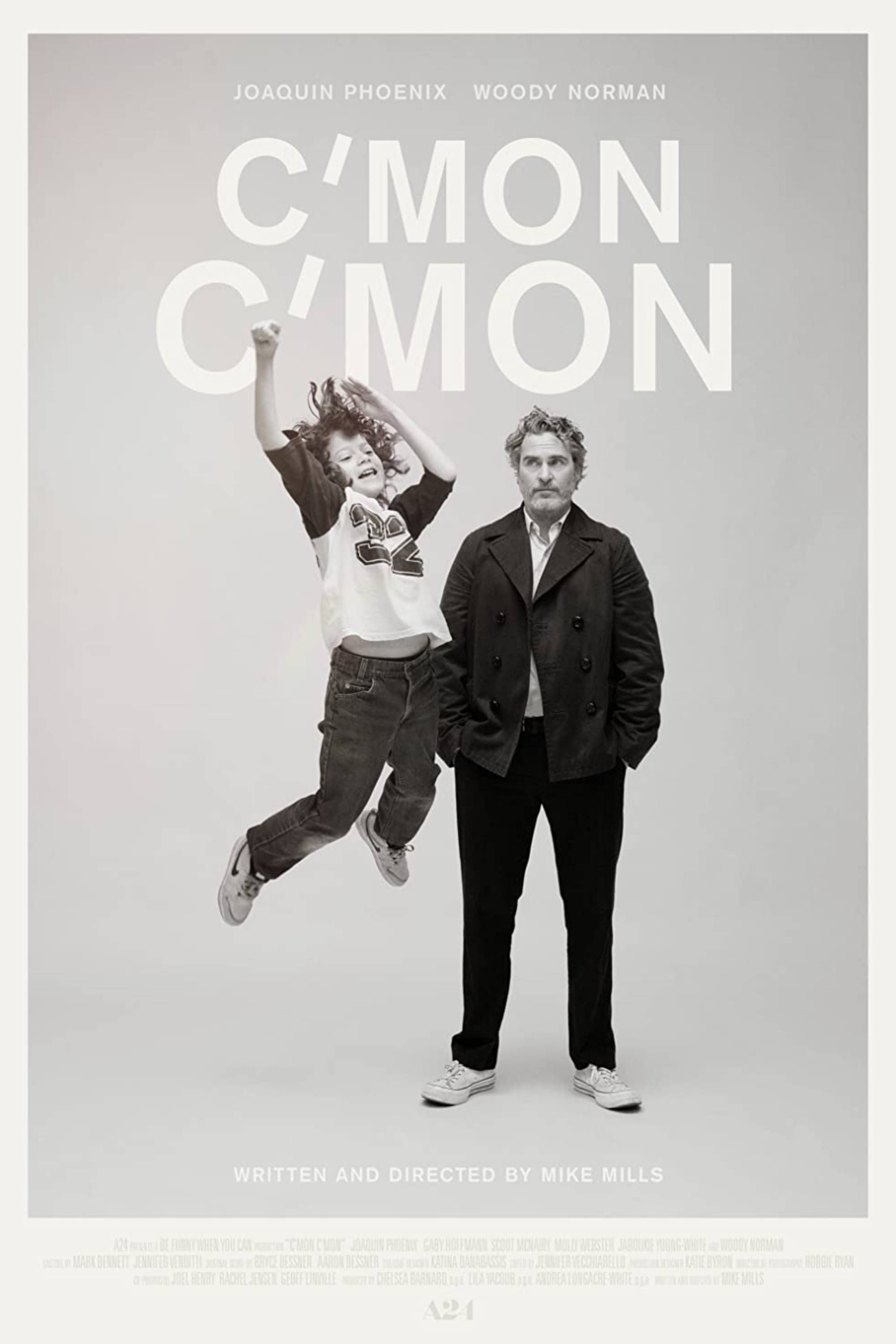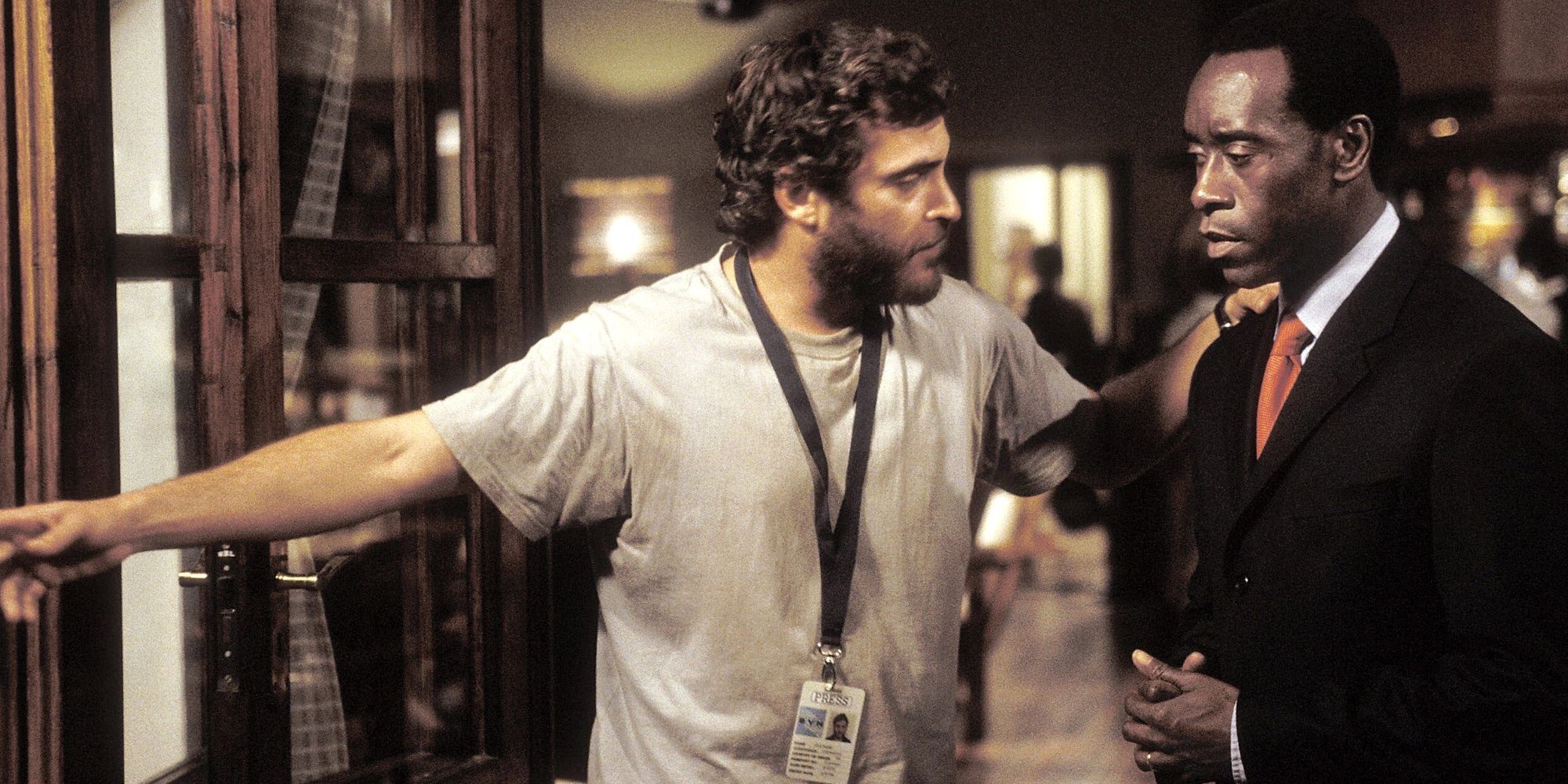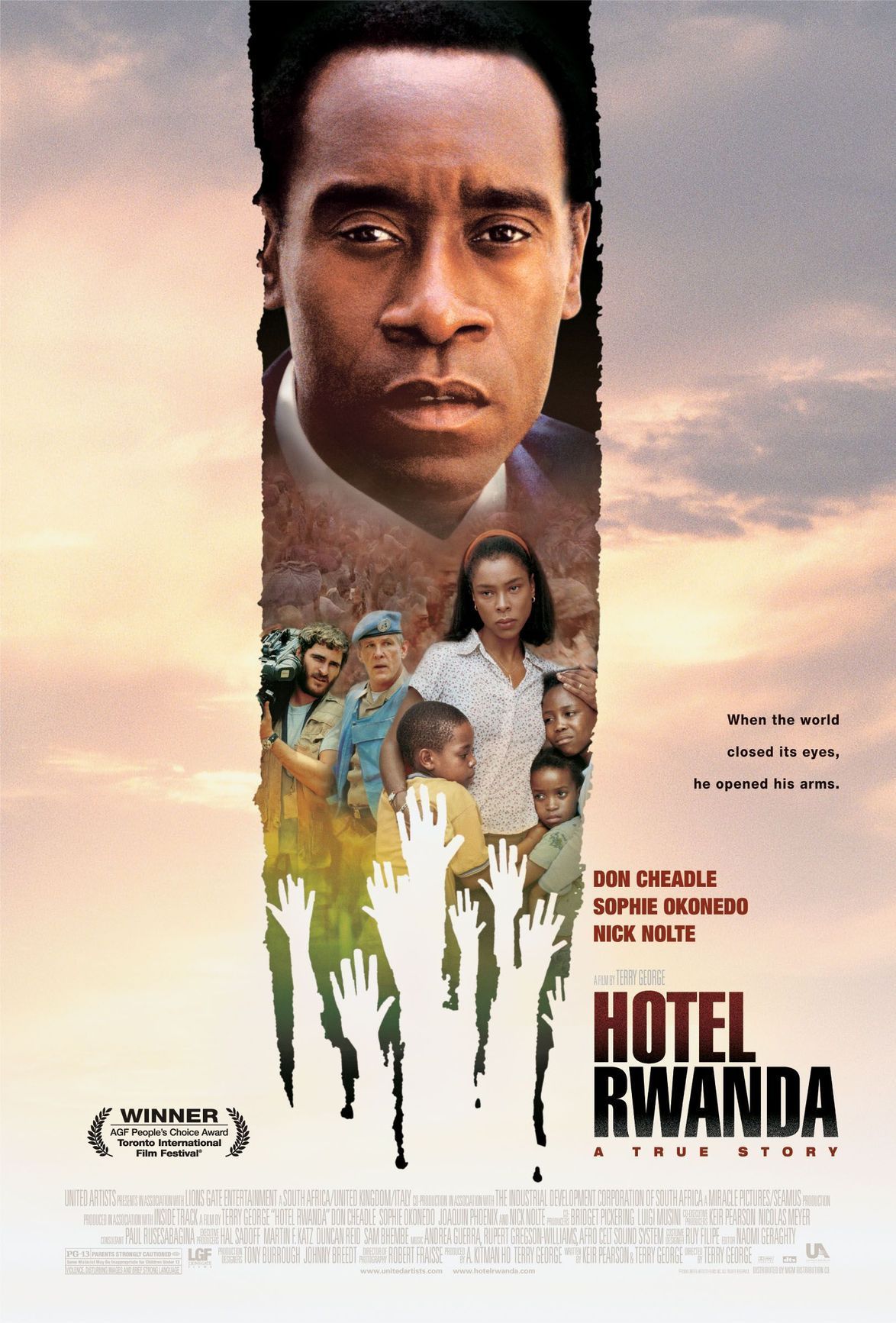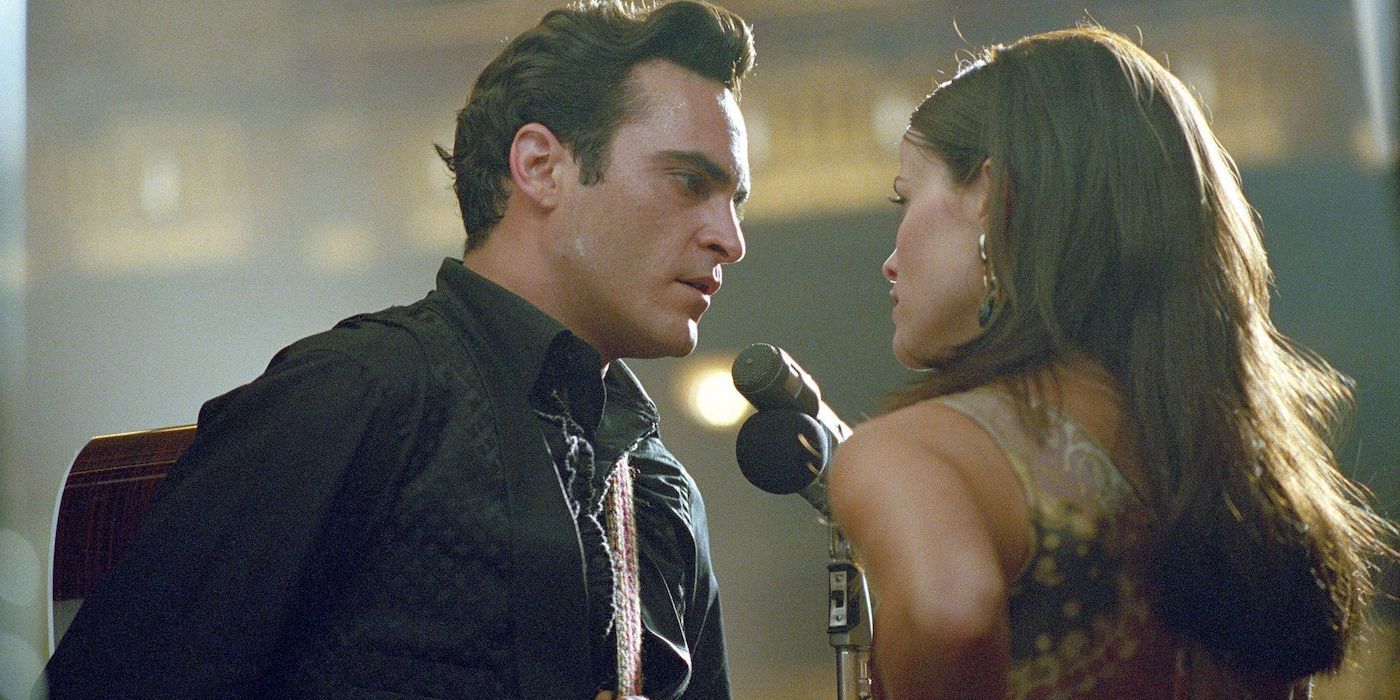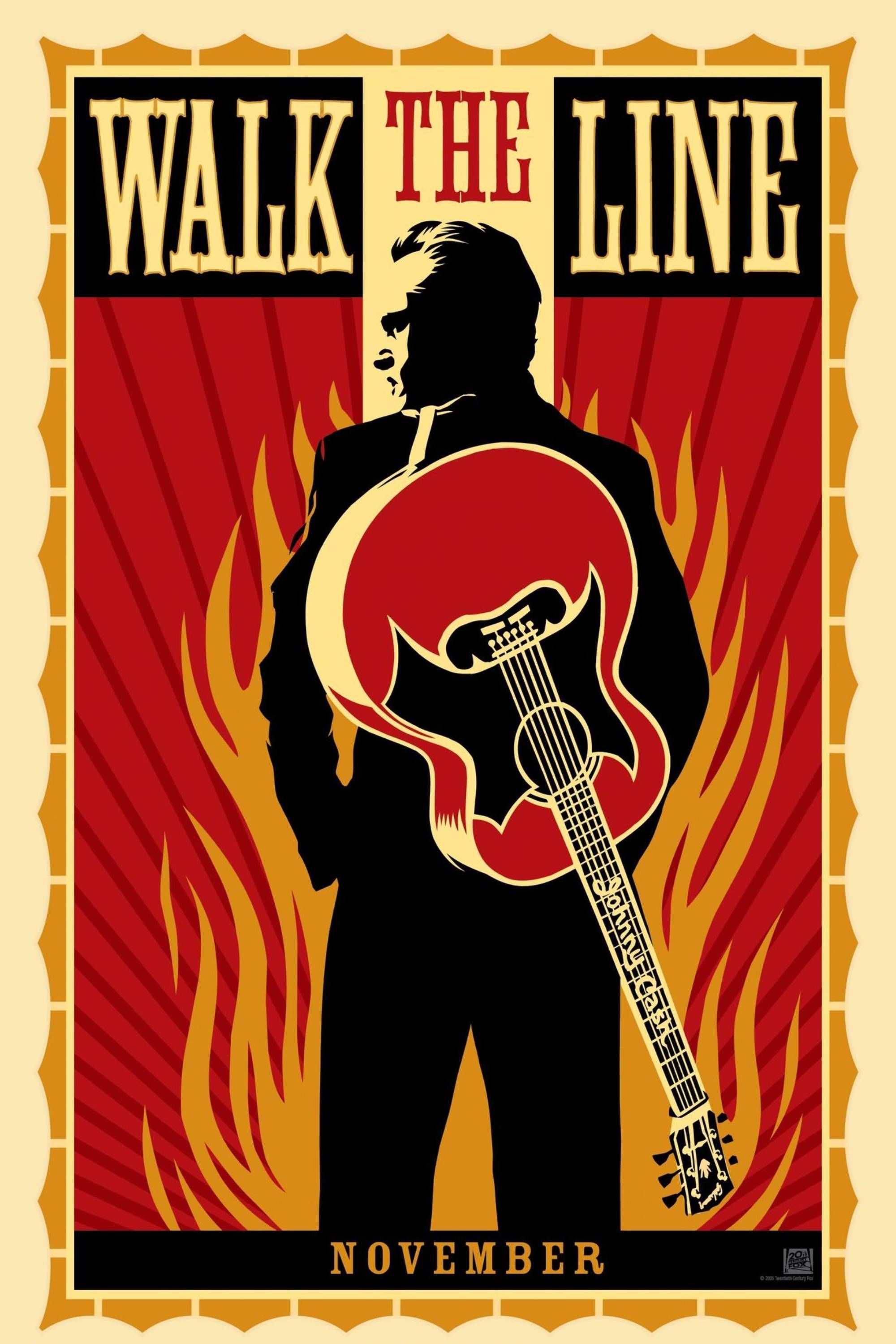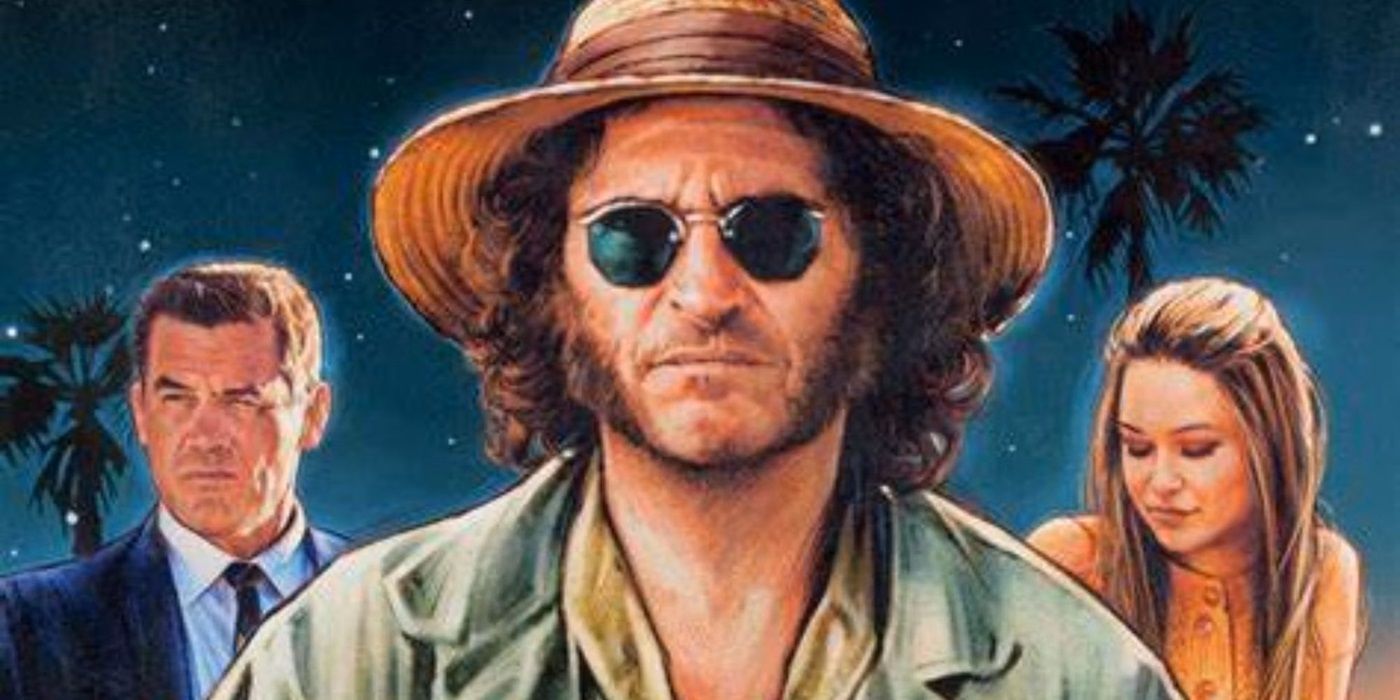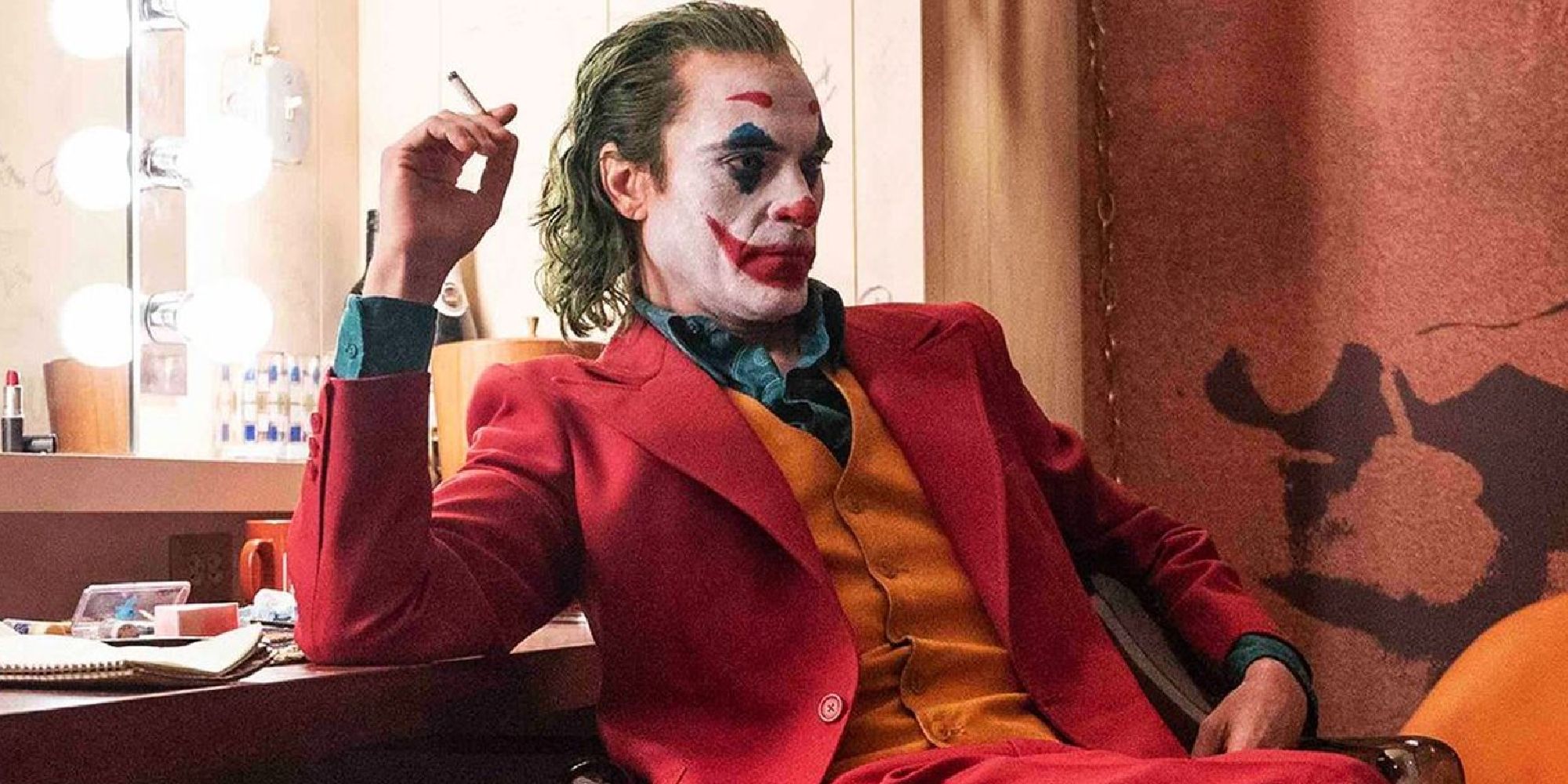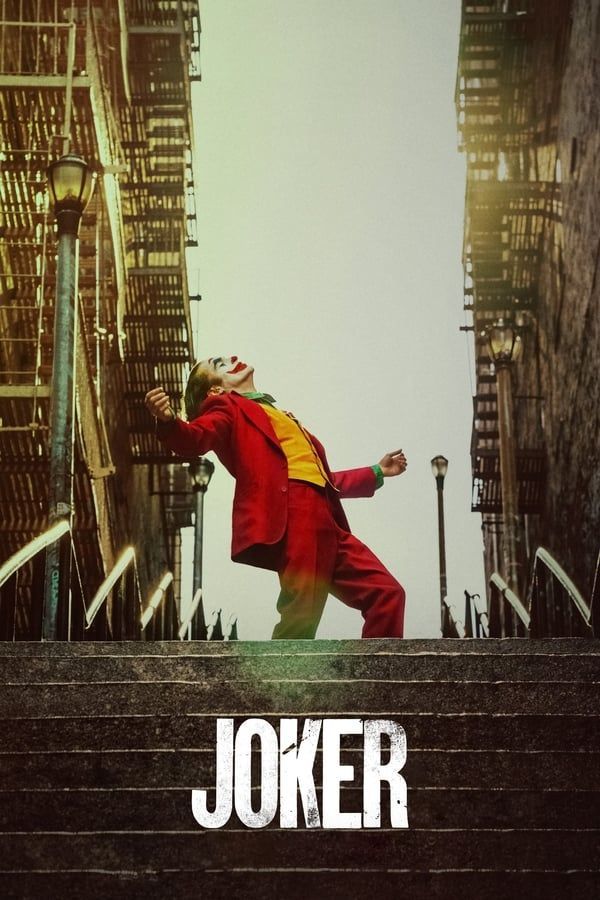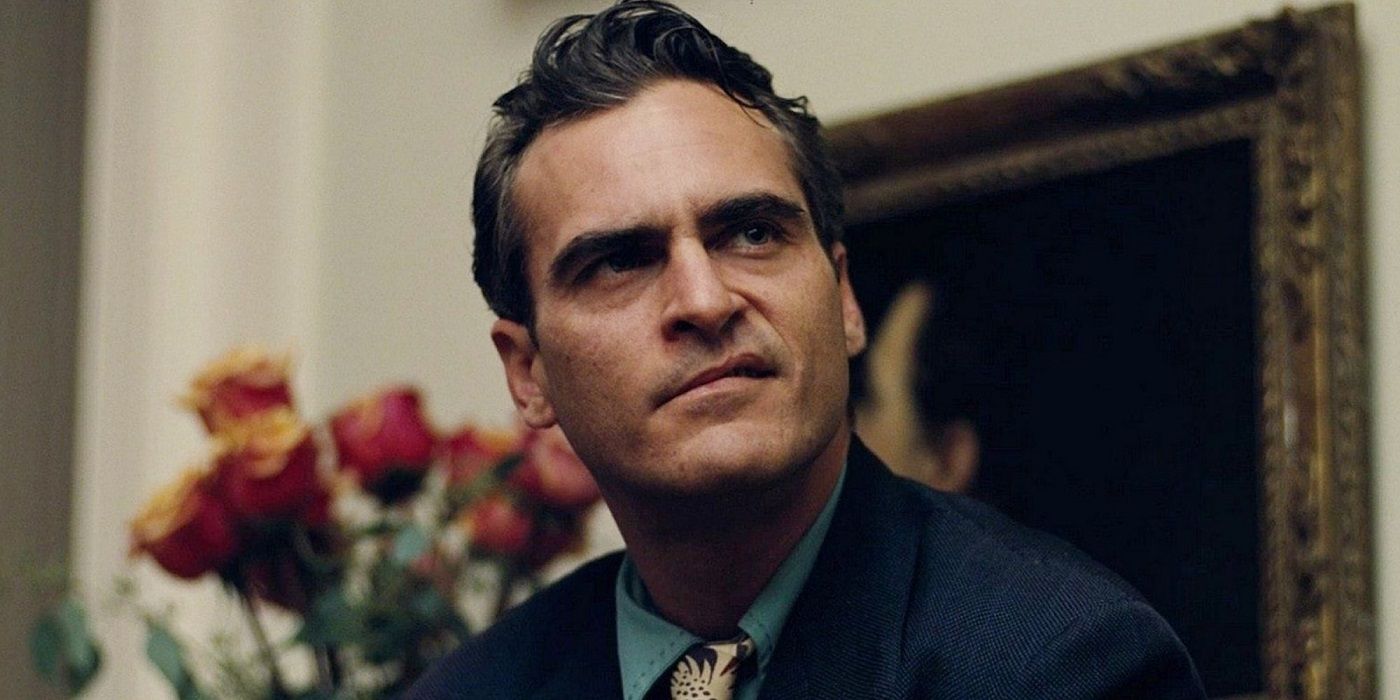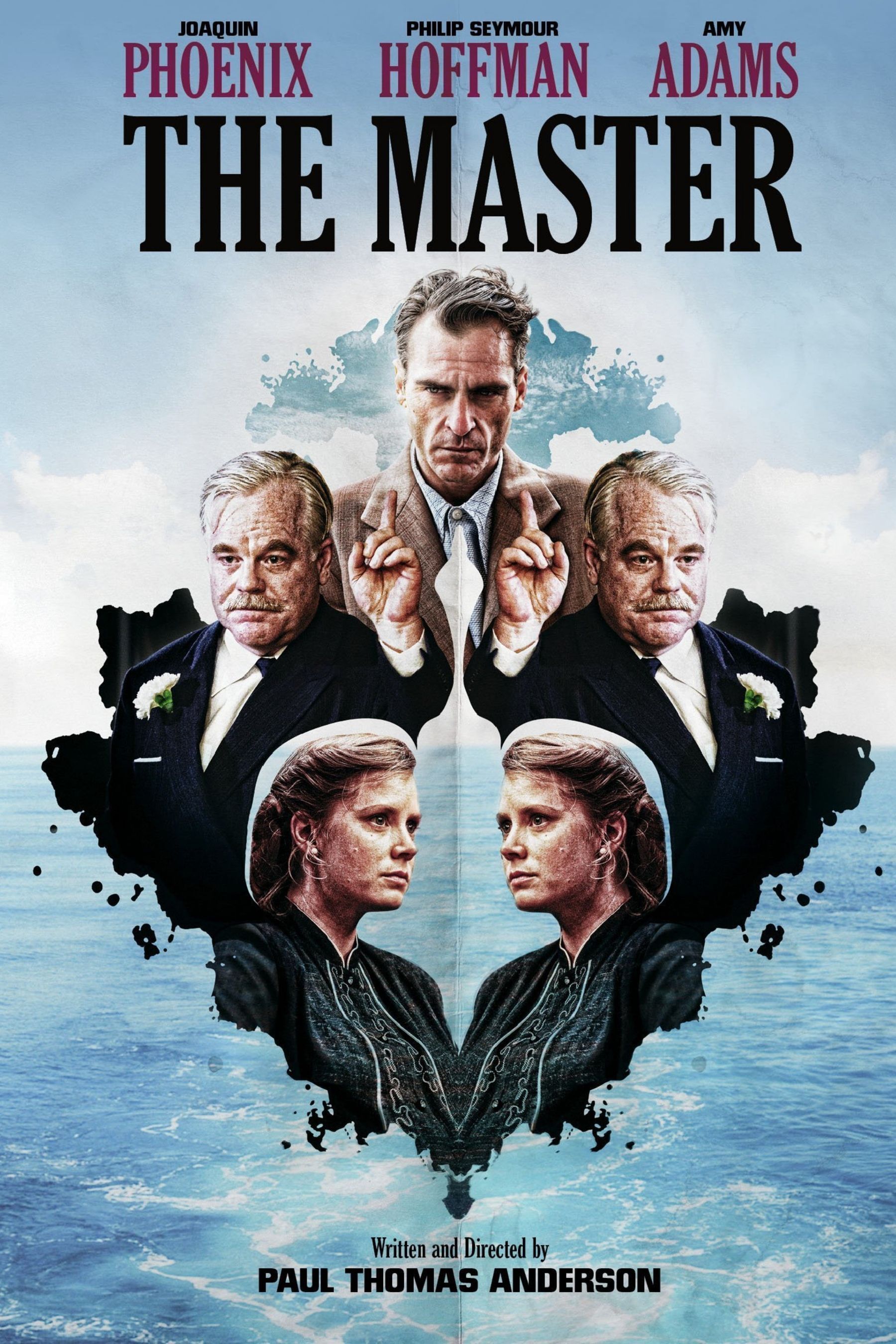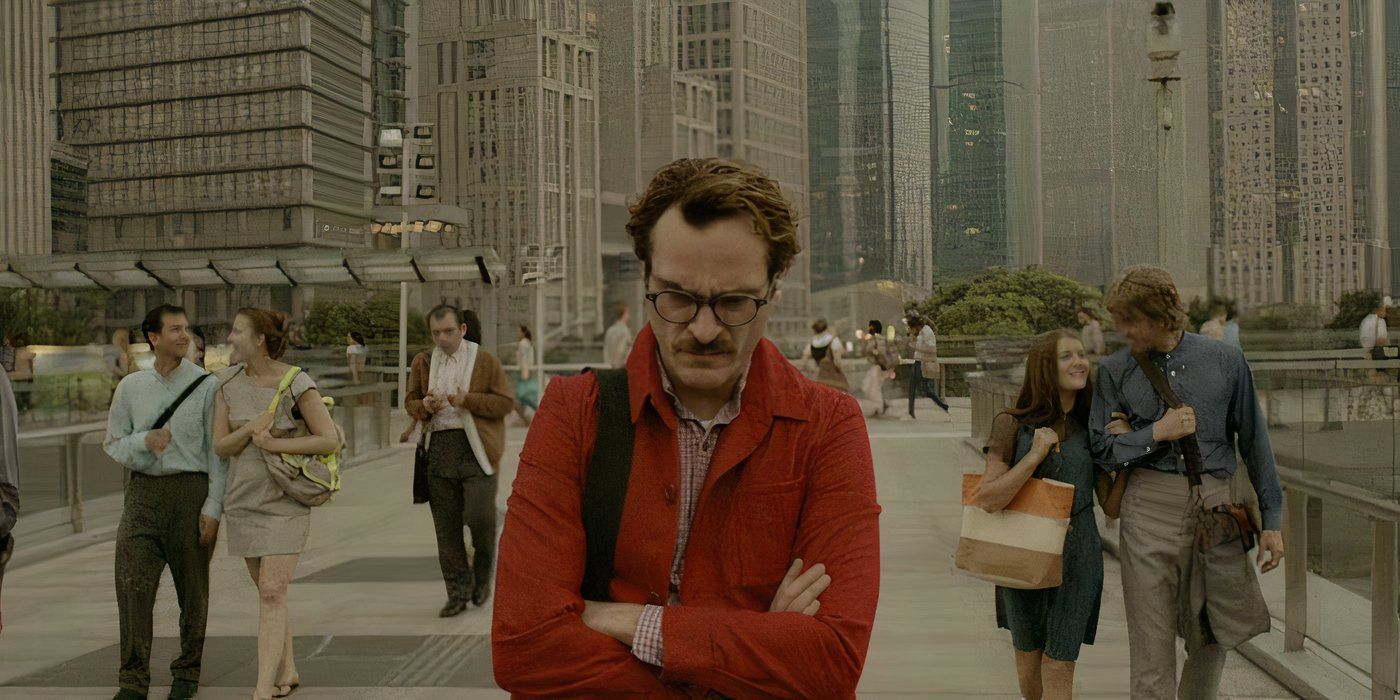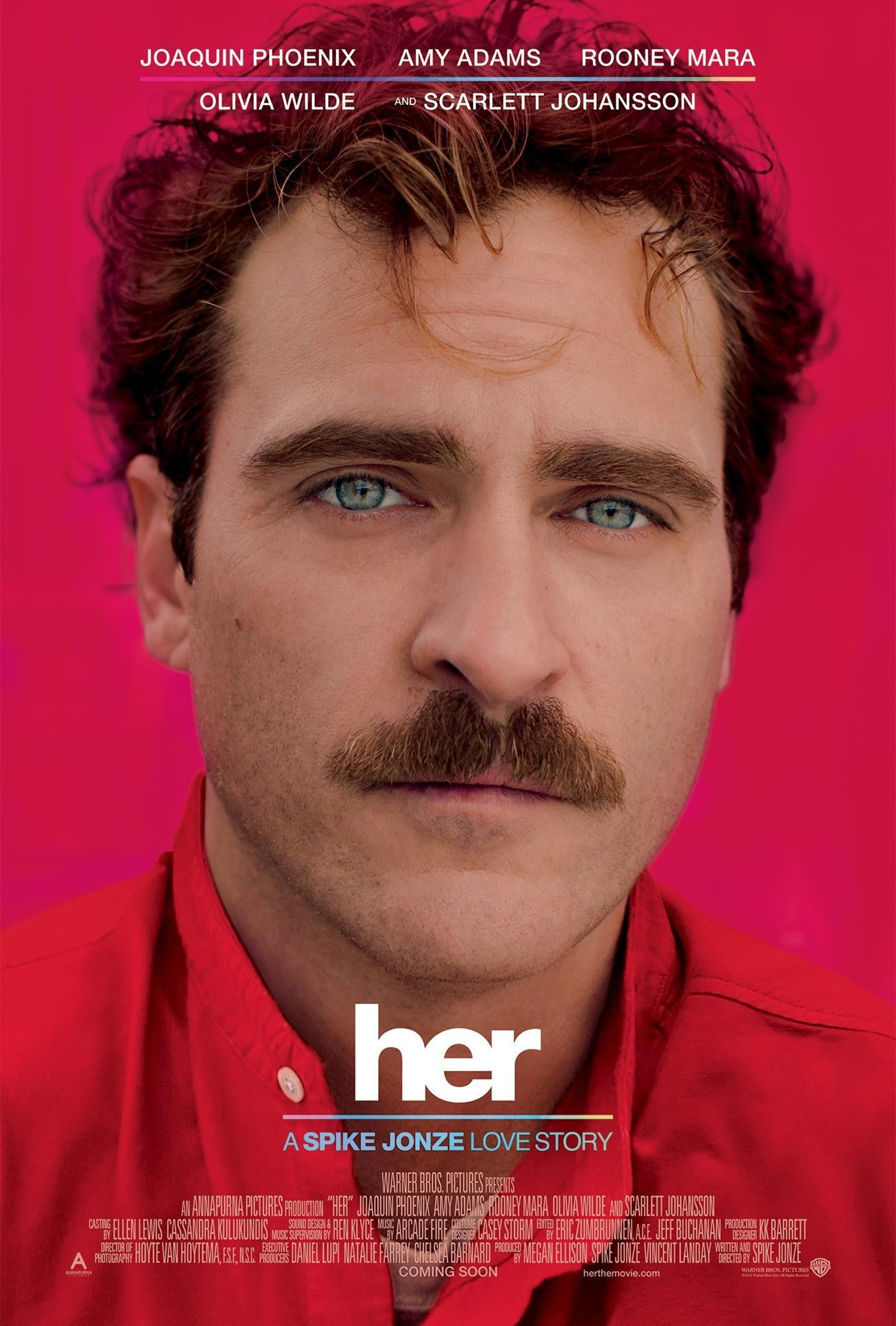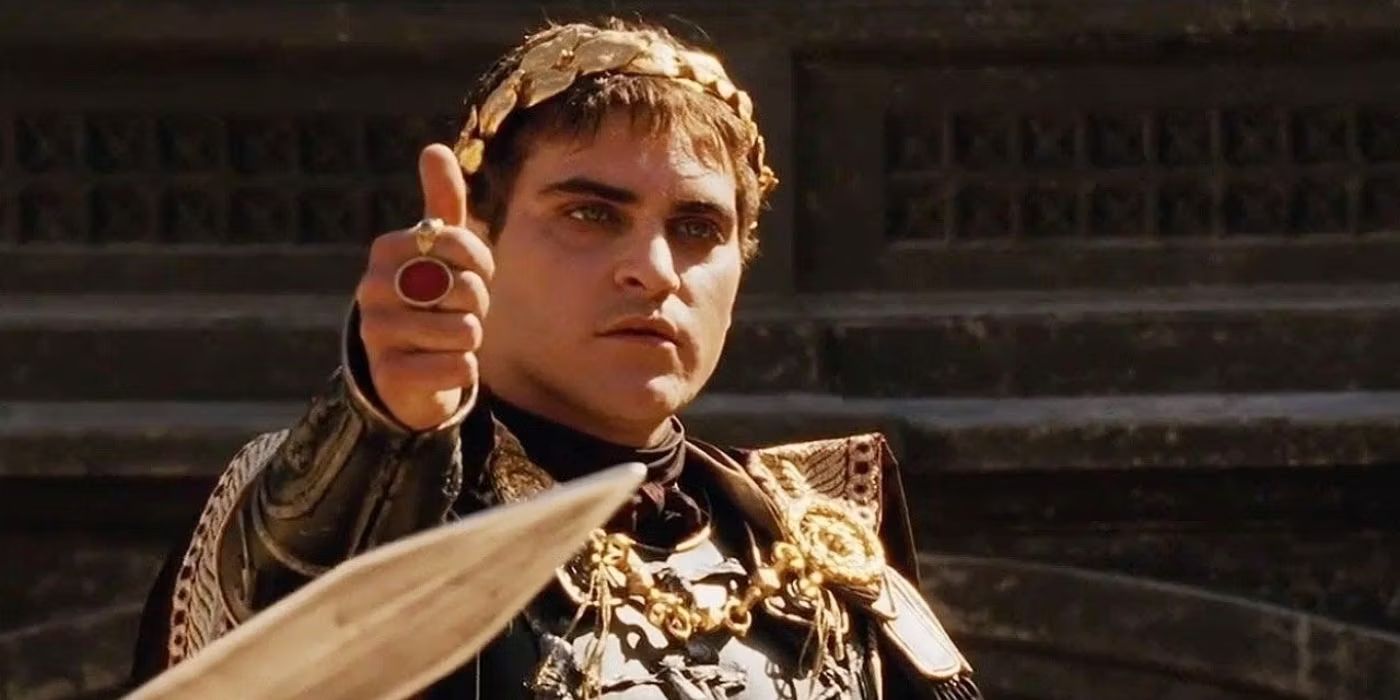10 Essential Joaquin Phoenix Movies, Ranked
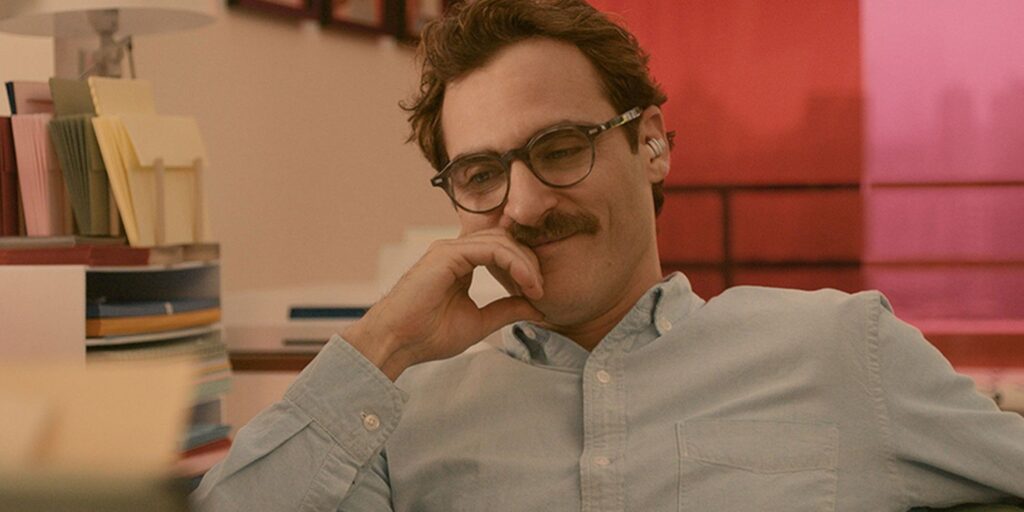
Joaquin Phoenix‘s career has been built on emotional extremes and physical transformations. Whether he’s playing a brooding loner, a crumbling addict, or a volatile visionary, there’s always something unpredictable coursing through his performances. He seems drawn to characters in flux—people with fractured identities, impossible desires, or deep spiritual wounds. He doesn’t just act—he disappears, combusts, and reforms.
With this in mind, this list ranks the actor’s must-see movies, from the tender loneliness of Her to the petulant villainy of Gladiator. These ten projects show off his range, from whisper-quiet romance to apocalyptic despair, historical epics to intimate character studies.
10
‘Quills’ (2000)
Directed by Philip Kaufman
“A writer is an eternal outsider. His words must shock, challenge, even offend.” In Quills, Phoenix plays Abbé du Coulmier, the young priest in charge of overseeing the Marquis de Sade (Geoffrey Rush) at the Charenton asylum. Du Coulmier begins as a man of compassion, tasked with controlling the dangerous creativity of de Sade, but soon finds himself pulled into a whirlpool of forbidden desire and moral ambiguity.
Phoenix gives a quietly tortured performance—repressed, restrained, yet aching with emotion—especially as he forms a conflicted attachment to Madeleine (Kate Winslet), a laundress who smuggles de Sade’s writings to the outside world. There’s something tragic in the way Phoenix plays Du Coulmier, someone who tries to control chaos only to be consumed by it. Through these characters, the movie explores censorship, madness, and the fine line between morality and repression. While some critics dismissed Quills as little more than softcore porn, most praised its boldness and sensuality.
9
‘You Were Never Really Here’ (2017)
Directed by Lynne Ramsay
“I want to die.” In this unconventional revenge thriller, Phoenix plays Joe, a brutal, traumatized hitman who rescues trafficked girls while carrying the scars of childhood abuse and military violence. When a job involving a senator’s daughter spirals into something darker, Joe’s mission turns inward, unraveling his sense of purpose and sanity. It’s one of Phoenix’s most immersive roles—shaved head, wild beard, twitching hands, eyes that never quite focus on the present. He won the Best Actor award at Cannes for his efforts.
Acting aside, the movie hits hard with its assault of impressionistic storytelling—quick cuts, ghostly sound design, and jagged chronology. Much of this is due to wizardry from editor Joe Bini and the music from Radiohead’s Jonny Greenwood. The movie crams a lot into its lean 90 minutes, transforming a grim pulp narrative into an absorbing, powerful artistic statement. It’s further proof of director Lynne Ramsay‘s formidable talents.
8
‘C’mon C’mon’ (2021)
Directed by Mike Mills
“Just because you don’t know what’s going to happen doesn’t mean you shouldn’t try.” In C’mon C’mon, Phoenix softens into something gently luminous. He plays Johnny, a public radio journalist traveling the U.S. to interview children about their thoughts on the future. When he’s asked to take care of his nephew Jesse (Woody Norman) for a few weeks, the film becomes a quiet meditation on parenting, grief, and emotional fluency.
Phoenix sheds his usual intensity here—Johnny is patient, uncertain, and emotionally generous, fumbling through the strange rhythms of caring for a child not his own. Most importantly, he has a tender, organic dynamic with the young Norman. Director Mike Mills (Beginners, 20th Century Women) shoots all this in black and white, letting the cityscapes of New York, Los Angeles, and New Orleans blur into a shared emotional space. The visuals are courtesy of cinematographer Robbie Ryan, known for his collaborations with Ken Loach and Yorgos Lanthimos.
7
‘Hotel Rwanda’ (2004)
Directed by Terry George
“How can they not intervene when they witness such atrocities?” Hotel Rwanda centers on Don Cheadle‘s Paul Rusesabagina, a hotel manager who shelters over a thousand Tutsi refugees during the 1994 genocide. Phoenix only has a supporting role, but his presence is no less impactful. He plays Jack, a journalist covering the genocide who stumbles into the horror and is forced to confront the limits of his own power.
Phoenix plays him with the shell-shocked detachment of someone unprepared for what he’s seeing. In a way, he becomes a stand-in for the broader Western conscience during this crisis: present, but paralyzed. That said, the undisputed star of the show in Hotel Rwanda is the Oscar-nominated Cheadle, who assumes an impressive accent and deeply believable mannerisms (a feat he would not repeat with his attempt to be British in Ocean’s Eleven). Overall, a solid drama about an important moment in recent history.
6
‘Walk the Line’ (2005)
Directed by James Mangold
“Hello, I’m Johnny Cash.” Walk the Line chronicles Johnny Cash‘s (Phoenix) rise from poor Arkansas boy to country music legend, focusing on his early struggles with addiction, fame, and love. Phoenix sings every note himself, capturing not just the sound but the soul of Cash’s iconic growl. But more importantly, he brings a haunted complexity to the man behind the myth.
Clearly, Phoenix did his research; he radiates a deep understanding of Cash rather than just a tribute. As a result, this isn’t a sanitized rock biopic—it’s a character study about a man trying to outrun grief, guilt, and the legacy of a brother who died too young. Crucially, Phoenix’s chemistry with Reese Witherspoon (as June Carter) is electric, volatile, and achingly sweet. While Walk the Line admittedly follows the conventional structure typical of music biopics, it does at least give its talented stars room to flesh out their characters and give the film their all.
5
‘Inherent Vice’ (2014)
Directed by Paul Thomas Anderson
“Well, maybe you’re not supposed to be asking questions like that… you’re supposed to be groovin’.” In this offbeat gem from Paul Thomas Anderson, Phoenix lets his freak flag fly as Larry “Doc” Sportello, a perpetually stoned private investigator caught in a hazy web of conspiracies, cults, cops, and real estate developers in 1970s California. Based on Thomas Pynchon’s notoriously unfilmable novel, the film leans into its confusion as Phoenix stumbles, mumbles, and sidesteps through the neon haze.
Not everyone embraced Inherent Vice on release, perhaps seeing it as too lightweight in comparison to the director’s darker masterpieces. But make no mistake, this is not just an easygoing comedy; there are layers to the movie. Something melancholic lingers underneath all the weed smoke and slapstick. The role is more challenging than it looks, and Phoenix nails it. He’s funny without being cartoony (especially with his double-takes and expressions), heartbreaking without being sentimental.
4
‘Joker’ (2019)
Directed by Todd Phillips
“My life is nothing but a comedy.” After Heath Ledger‘s towering performance, it seemed no one would be able to make magic again with a Joker performance, but Phoenix succeeded in turning this iconic villain into a disturbingly human figure. As Arthur Fleck, a failed comedian with mental illness in a crumbling Gotham City, the actor delivers a performance that is equal parts hypnotic, horrifying, and heartbreaking.
Todd Phillips reimagines the origin of the Joker as a character study in despair—a man pushed so far to the margins that violence becomes his only form of self-expression. He channels The King of Comedy, taking the narrative into truly dark places, yet carried audiences along for the ride (even if the film also sparked controversy). But the eye of the storm is Phoenix’s Oscar-winning performance. He walks a fine line between sympathy and revulsion, never asking the audience to pity Arthur, but forcing them to understand him.
3
‘The Master’ (2012)
Directed by Paul Thomas Anderson
“I do many, many things. I am a writer, a doctor, a nuclear physicist, a theoretical philosopher… but above all, I am a man.” In The Master, Phoenix plays Freddie Quell, a World War II vet drifting through a postwar America that no longer fits him. He’s volatile, animalistic, wounded—and when he meets Lancaster Dodd (Philip Seymour Hoffman), the charismatic leader of a new spiritual movement, he finds something resembling direction. Their toxic and strangely tender relationship becomes the film’s centerpiece.
Overall, The Master is more enigmatic and frustrating than Boogie Nights or There Will Be Blood, with a narrative that might leave many feeling a bit disappointed, but this is also what makes it interesting. Either way, the craftsmanship is undeniable. Anderson vividly recreates the look and atmosphere of America in the immediate aftermath of World War II, complete with breathtaking cinematography. Finally, on the acting front, Phoenix, Hoffman, and Amy Adams all turn in stellar work.
2
‘Her’ (2013)
Directed by Spike Jonze
“Sometimes I think I’ve felt everything I’m ever gonna feel.” One of the most prophetic sci-fi films of the 2010s, Her features Phoenix as Theodore Twombly, a lonely letter-writer in the near future who falls in love with an artificial intelligence named Samantha (voiced by Scarlett Johansson). It sounds like high-concept sci-fi, but Spike Jonze directs it like a breakup ballad—soft, intimate, and overwhelmingly human.
Phoenix wears sadness like a second skin here, fully believable as someone grieving connection in a world that’s slowly disconnecting. As AI continues to grow in leaps and bounds, and people grow more isolated even as social media booms, many of the ideas Her plays with seem to be on the horizon – or already here. This is the kind of film whose stature is only going to grow in the decades to come, as its predictions become reality. But aside from that, Her is simply tender, romantic, and poignant.
1
‘Gladiator’ (2000)
Directed by Ridley Scott
“Am I not merciful?” Claiming the top spot on this, perhaps unsurprisingly, is Gladiator, which sees Phoenix transforming into Commodus, one of the most hiss-worthy villains in modern cinema. He’s a petulant, power-hungry emperor whose insecurity festers into full-blown tyranny. Set opposite Russell Crowe’s noble Maximus, Phoenix’s Commodus is all silk and poison. He’s not just evil—he’s wounded, desperate, and increasingly unhinged. The villains in the sequel did a good job, but they don’t come close to this.
Phoenix plays him as a man who knows he’ll never be loved the way he wants, and lashes out accordingly. It’s a performance that balances theatrics with deep-seated emotional rot—Commodus’s eyes always wet with unshed tears, his voice always on the edge of a tantrum. He’s terrifying not because he’s strong, but because he’s fragile and vicious. In a movie defined by brawny heroics, Phoenix offers a portrait of villainy rooted in deep psychological cracks.
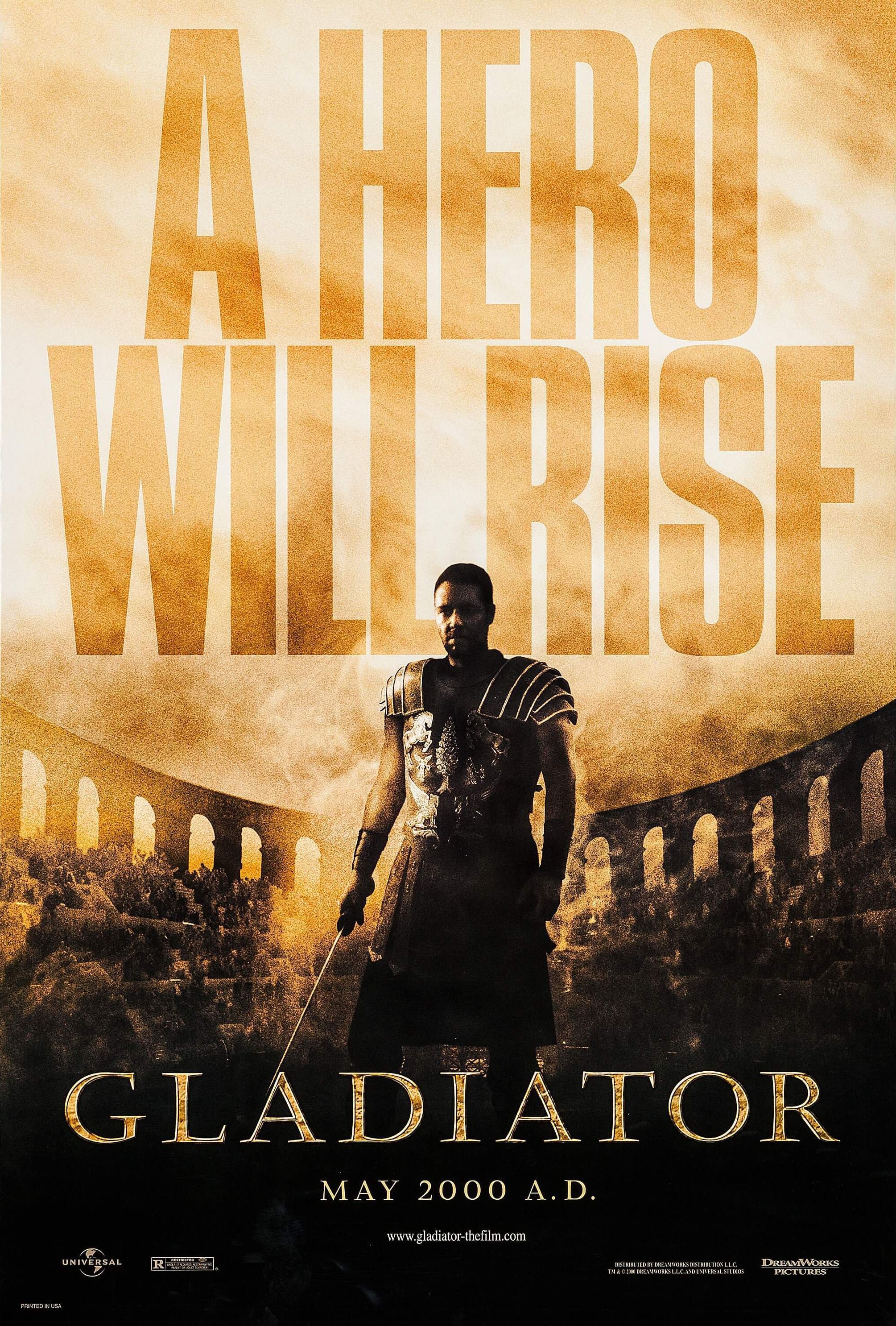
- Release Date
-
May 5, 2000
- Runtime
-
155 minutes
- Writers
-
David Franzoni, John Logan, William Nicholson

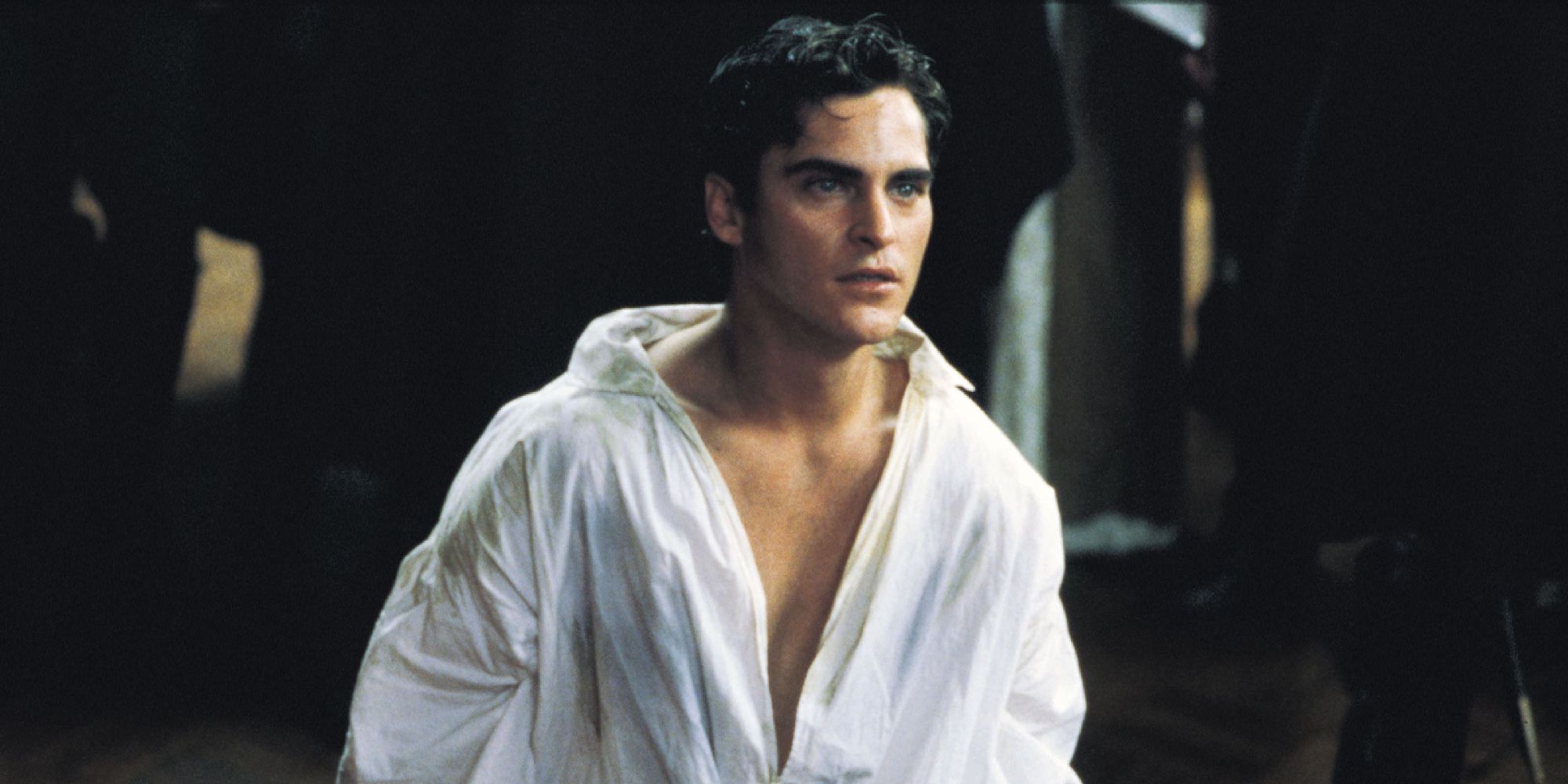
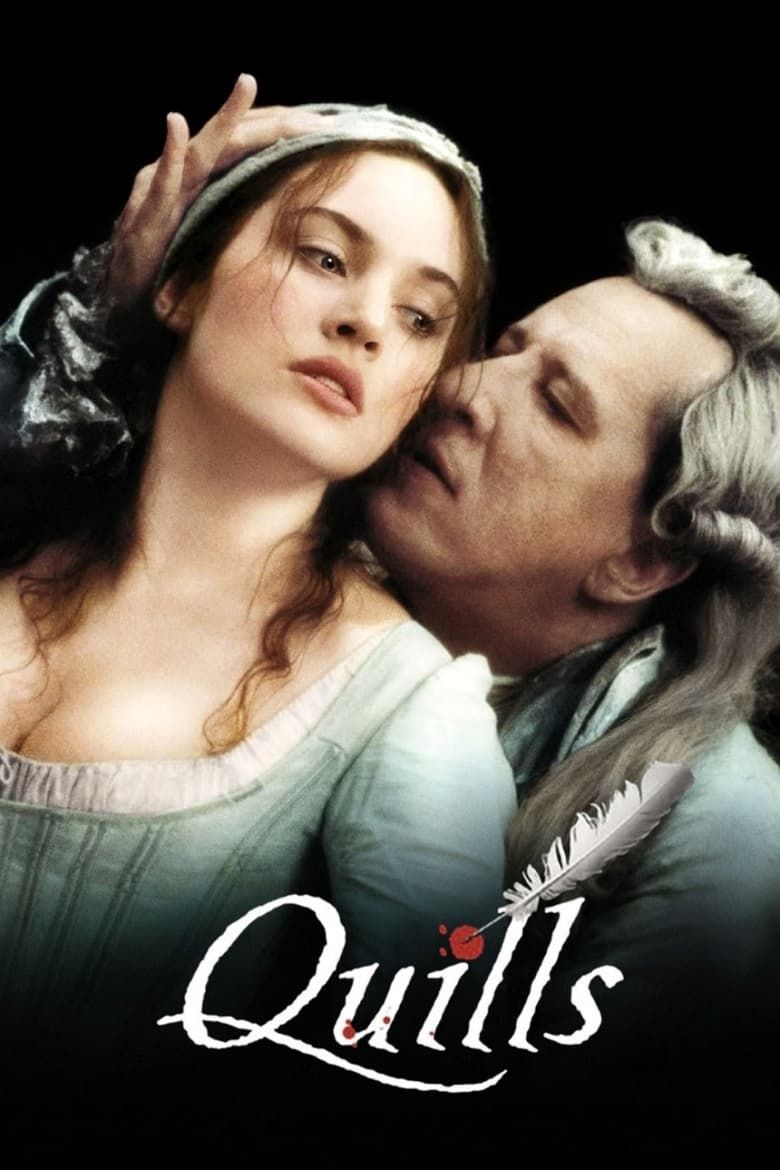
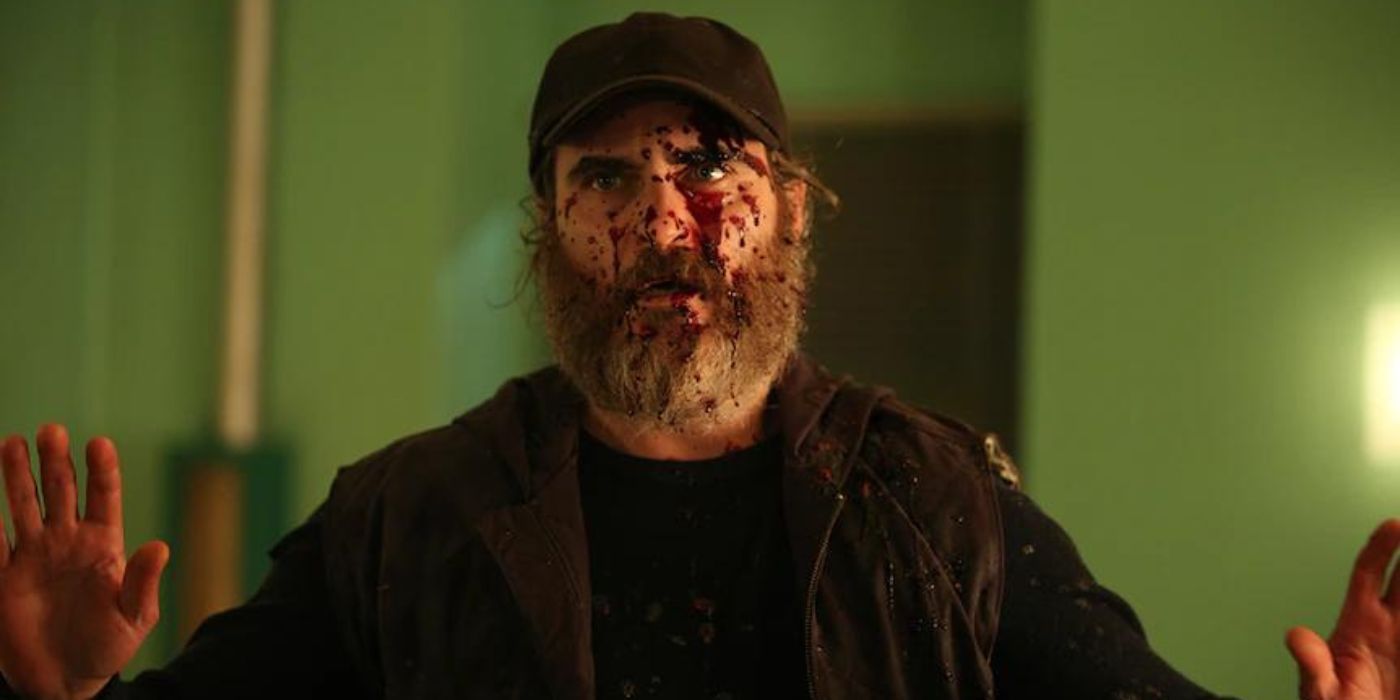
-1.jpg)
